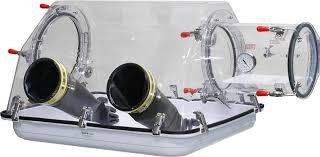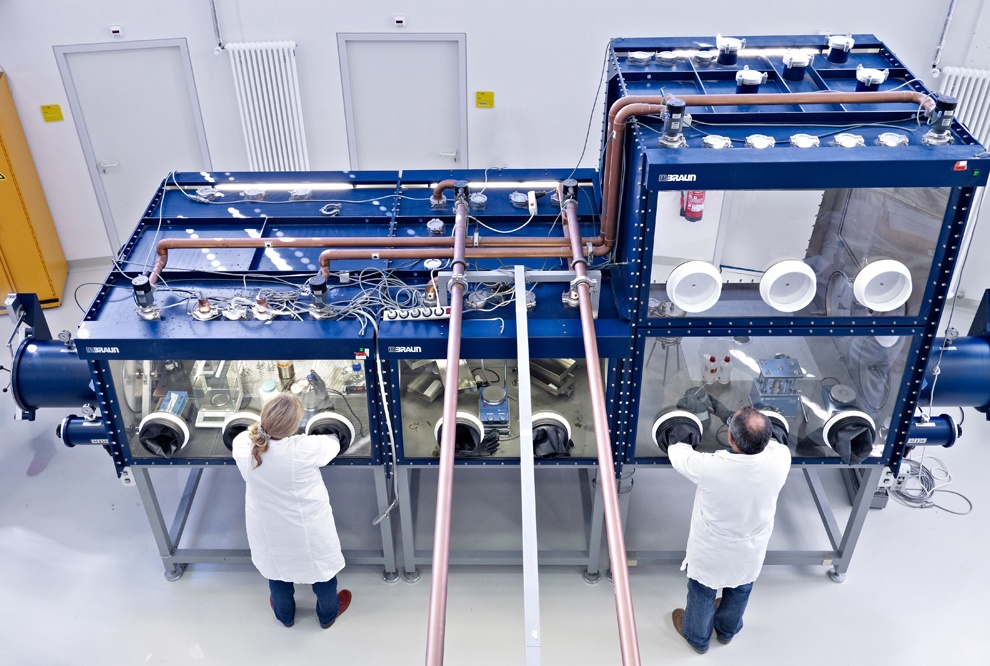The Imperative Role of Accurate Weight Measurements in Laboratory Settings

The Foundation of Precision: Why Accurate Weight Measurements Are Essential in Laboratories

In the realm of scientific research, where meticulousness and precision reign supreme, the pursuit of knowledge hinges on the accuracy of measurements. Among the myriad instruments employed in laboratories, laboratory balances stand as pillars of reliability, ensuring the integrity of experiments and the validity of findings. These instruments, often taken for granted, play a pivotal role in a wide array of scientific disciplines, from chemistry and biology to materials science and pharmaceuticals.
The significance of accurate weight measurements in laboratory settings cannot be overstated. Every experiment, every analysis, every formulation relies on the precise determination of mass. From the minute quantities of reagents used in chemical reactions to the precise dosages of medications in pharmaceutical research, the accuracy of weight measurements directly impacts the outcomes of scientific endeavors.
Imagine a chemist meticulously preparing a solution for a critical experiment. The success of the experiment hinges on the precise proportions of the components. A slight deviation in the weight of a reagent could lead to an entirely different outcome, potentially rendering the experiment inconclusive or even misleading. This scenario underscores the critical role of laboratory balances in ensuring the reproducibility and reliability of scientific research.
The impact of inaccurate weight measurements extends beyond individual experiments. In the realm of drug development, for instance, the precise dosage of active pharmaceutical ingredients is paramount. Even a minor discrepancy in weight can have significant consequences, potentially affecting the efficacy of a drug or even posing safety risks to patients. The pharmaceutical industry, therefore, relies heavily on the accuracy of laboratory balances to ensure the safety and effectiveness of its products.
The importance of accurate weight measurements extends to various other scientific disciplines. In materials science, the precise determination of the mass of materials is crucial for understanding their properties and behavior. In environmental science, accurate weight measurements are essential for monitoring pollutants and assessing environmental impact. In food science, precise weight measurements are critical for ensuring the quality and safety of food products.
The pursuit of accurate weight measurements in laboratories is not merely a matter of scientific rigor; it is a fundamental requirement for ensuring the validity and reliability of scientific research. Inaccurate weight measurements can lead to erroneous conclusions, wasted resources, and even compromised safety. Therefore, the selection and proper use of laboratory balances are essential for maintaining the integrity of scientific endeavors.
In the following sections, we will delve deeper into the intricacies of laboratory balances, exploring their different types, functionalities, and applications. We will also discuss the factors that influence the accuracy of weight measurements and provide insights into best practices for ensuring optimal performance. By understanding the nuances of laboratory balances and their role in scientific research, we can foster a culture of precision and reliability in laboratories worldwide.
The Foundation of Precision: Understanding the Critical Role of Accurate Weight Measurements in Laboratory Settings
In the realm of scientific research, where meticulousness and accuracy reign supreme, the significance of precise weight measurements cannot be overstated. Laboratories, the epicenters of scientific discovery, rely heavily on accurate weight measurements for a myriad of applications, from conducting experiments to formulating solutions and analyzing samples. The accuracy of these measurements directly impacts the validity and reliability of research findings, ultimately influencing the advancement of scientific knowledge and technological innovation.
The pursuit of accurate weight measurements in laboratories is not merely a matter of adherence to protocols; it is a fundamental principle that underpins the entire scientific process. Every experiment, every analysis, and every formulation hinges on the precision of weight measurements. A slight deviation in weight can lead to a cascade of errors, jeopardizing the integrity of research data and potentially rendering conclusions unreliable. This underscores the imperative need for laboratory professionals to prioritize the use of high-quality, calibrated laboratory balances, ensuring that every measurement is accurate and trustworthy.
The Impact of Inaccurate Weight Measurements: A Ripple Effect Across Scientific Disciplines
The consequences of inaccurate weight measurements extend far beyond the confines of individual laboratories. In the broader scientific community, these errors can have a profound impact on the reproducibility of research findings, hindering the progress of scientific inquiry. When researchers are unable to replicate the results of previous studies due to inconsistencies in weight measurements, it raises serious questions about the validity of the original findings and casts doubt on the reliability of the scientific process itself.
Consider the field of pharmaceutical research, where accurate weight measurements are paramount in drug development and formulation. A slight error in the weight of a drug ingredient can alter its potency, efficacy, and even safety. Such inaccuracies can have devastating consequences, potentially leading to the development of ineffective or even harmful medications. The repercussions of inaccurate weight measurements in this field are not only scientific but also ethical, as they directly impact the well-being of patients.
The impact of inaccurate weight measurements extends to other scientific disciplines as well. In environmental science, precise weight measurements are crucial for analyzing pollutants and monitoring environmental changes. In materials science, accurate weight measurements are essential for characterizing the properties of new materials and developing innovative technologies. In food science, precise weight measurements are critical for ensuring the quality and safety of food products. In each of these fields, the accuracy of weight measurements directly influences the reliability of research findings and the effectiveness of scientific solutions.
The Importance of Laboratory Balances: The Cornerstone of Accurate Weight Measurements
At the heart of accurate weight measurements in laboratories lie laboratory balances, precision instruments designed to measure the mass of objects with high accuracy. These balances are available in a wide range of models, each tailored to specific applications and requirements. From basic analytical balances to high-precision microbalances, laboratory balances are essential tools for researchers, scientists, and technicians across various disciplines.
Laboratory balances operate on the principle of comparing the unknown mass of an object to a known mass. This comparison is typically achieved through a system of weights or a calibrated spring mechanism. The balance then displays the measured mass, providing researchers with a precise and reliable measurement of the object's weight. The accuracy of laboratory balances is paramount, as even the slightest deviation in their calibration can lead to significant errors in weight measurements.
The choice of laboratory balance depends on the specific application and the required level of accuracy. For routine weighing tasks, a basic analytical balance may suffice. However, for applications requiring high precision, such as drug formulation or material characterization, a microbalance or an ultra-microbalance may be necessary. The selection of the appropriate laboratory balance is crucial for ensuring the accuracy and reliability of weight measurements in laboratory settings.
Factors Influencing the Accuracy of Laboratory Balances: A Comprehensive Overview
The accuracy of laboratory balances is influenced by a multitude of factors, including environmental conditions, calibration, and proper handling. Understanding these factors is essential for ensuring the reliability of weight measurements and maintaining the integrity of scientific research.
Environmental Factors: A Constant Challenge to Accuracy
Laboratory balances are sensitive instruments that can be affected by environmental factors such as temperature, humidity, and air currents. Temperature fluctuations can cause the balance to expand or contract, leading to inaccuracies in weight measurements. Similarly, high humidity levels can affect the balance's sensitivity and accuracy. Air currents can also disrupt the balance's equilibrium, leading to inconsistent measurements.
To mitigate the impact of environmental factors, it is essential to place laboratory balances in a stable and controlled environment. The laboratory should be temperature-controlled, with minimal fluctuations in temperature and humidity. The balance should be placed on a stable surface, free from vibrations and air currents. It is also important to ensure that the balance is properly shielded from direct sunlight and other sources of heat.
Calibration: The Key to Maintaining Accuracy
Calibration is a critical aspect of ensuring the accuracy of laboratory balances. Calibration involves adjusting the balance to ensure that it provides accurate weight measurements. Regular calibration is essential for maintaining the balance's accuracy over time, as its performance can degrade due to wear and tear, environmental factors, or improper handling.
Calibration procedures typically involve comparing the balance's readings to known weights or standards. The balance is then adjusted to match the known weights, ensuring that it provides accurate measurements. The frequency of calibration depends on the balance's usage and the required level of accuracy. For high-precision balances used in critical applications, frequent calibration is essential, while for routine weighing tasks, less frequent calibration may suffice.
Proper Handling: A Crucial Aspect of Accuracy
Proper handling of laboratory balances is essential for maintaining their accuracy and longevity. Rough handling can damage the balance's delicate components, leading to inaccuracies in weight measurements. It is important to handle the balance with care, avoiding sudden movements or shocks. The balance should be cleaned regularly to prevent dust and debris from accumulating on its sensitive components.
When using the balance, it is important to follow the manufacturer's instructions carefully. The balance should be properly leveled before use, and the weighing pan should be clean and dry. The object being weighed should be placed gently on the weighing pan, avoiding any sudden movements. It is also important to ensure that the balance is properly calibrated before each use.
The Role of IT Tech in Ensuring Accurate Weight Measurements: A Trusted Partner in Scientific Advancement
IT Tech, a leading provider of laboratory consumables and equipment, understands the critical role of accurate weight measurements in scientific research. We offer a wide range of laboratory balances, from basic analytical balances to high-precision microbalances, catering to the diverse needs of researchers, scientists, and technicians across various disciplines.
Our laboratory balances are manufactured by reputable brands known for their quality, accuracy, and reliability. We also provide comprehensive calibration services, ensuring that our balances meet the highest standards of accuracy. Our team of experts is available to provide technical support and guidance, ensuring that our customers have the knowledge and resources they need to make informed decisions about their laboratory balance needs.
At IT Tech, we are committed to providing our customers with the highest quality laboratory equipment and consumables, enabling them to conduct accurate and reliable research. We believe that accurate weight measurements are the foundation of scientific discovery, and we are proud to play a role in supporting the advancement of scientific knowledge and technological innovation.
The Path Forward: Ensuring Accuracy and Efficiency in Your Laboratory
The pursuit of scientific advancement hinges on the foundation of precise measurements. In the realm of laboratory research, where minute details hold immense significance, the accuracy of weight measurements becomes paramount. The impact of inaccurate weighing extends far beyond mere numerical discrepancies; it can compromise the integrity of experiments, skew research findings, and ultimately hinder the progress of scientific discovery.
As we've explored, the consequences of inaccurate weighing can be far-reaching, impacting everything from the reproducibility of experiments to the validity of research conclusions. The implications extend beyond the immediate laboratory setting, potentially influencing the development of new drugs, the efficacy of medical treatments, and the advancement of technological innovations. The pursuit of scientific progress demands unwavering commitment to accuracy, and this commitment begins with the selection and proper utilization of laboratory balances.
The journey towards achieving accurate and reliable weight measurements in your laboratory is not a solitary endeavor. It requires a multifaceted approach that encompasses the selection of appropriate balances, the implementation of proper calibration procedures, and the adoption of best practices for handling and operating these instruments. This journey is one that IT Tech is dedicated to supporting, offering a comprehensive range of laboratory balances designed to meet the diverse needs of research institutions, pharmaceutical companies, and other scientific organizations.
IT Tech's portfolio of laboratory balances encompasses a wide spectrum of models, each meticulously engineered to deliver exceptional accuracy and reliability. From precision balances capable of measuring minute quantities to analytical balances designed for the most demanding applications, our offerings cater to the specific requirements of your laboratory. Our commitment extends beyond the provision of high-quality equipment; we offer expert guidance and support to ensure that you select the ideal balance for your specific needs and that you utilize it effectively to achieve optimal results.
Investing in reliable laboratory balances is not merely an expenditure; it's an investment in the future of your research. It's an investment in the accuracy of your data, the validity of your findings, and the advancement of scientific knowledge. IT Tech stands ready to partner with you on this journey, providing the tools, expertise, and support you need to achieve unparalleled accuracy in your laboratory.
Take the first step towards achieving unparalleled accuracy in your laboratory. Contact IT Tech today to discuss your specific needs and explore our comprehensive range of laboratory balances.
Submit an inquiry now and let IT Tech help you elevate your laboratory's capabilities to new heights of precision and efficiency.😎😎😎
Products You may Like
Check out other IT- Tech product that suit your taste
Subscribe to our newsletter
Stay updated with IT-Tech Insights
Related posts
Check out other IT- Tech Scientific Resources

Captains of the Glove Box Universe: Movers and Shakers in the Industry
The Glove Box industry is a dynamic landscape driven by innovation and a commitment to laboratory safety. This article delves into the world of Glove Box manufacturers, examining their unique offerings, technological advancements, and impact on research and development. From established leaders to emerging players, we explore the companies driving the evolution of Glove Box technology, ensuring a secure and controlled environment for critical scientific work. Join us as we uncover the movers and shakers who are shaping the future of Glove Box technology.

Superhero Sidekicks: The Many Marvels of Glove Boxes
Glove Boxes are enclosed workstations designed to create a controlled environment for handling sensitive materials. They are widely used in laboratories for applications such as handling hazardous substances, conducting sterile procedures, and working with materials that require protection from atmospheric contaminants. Glove Boxes provide a barrier between the user and the work area, ensuring the safety of both the operator and the experiment. They are equipped with gloves that allow manipulation of materials within the box while maintaining a controlled atmosphere. Glove Boxes are essential for a wide range of scientific disciplines, including chemistry, biology, pharmaceuticals, and materials science. They play a crucial role in research, development, and quality control, enabling scientists to conduct experiments with precision and accuracy.

Who's Who in the World of Lab Furniture: Industry Giants and Their Premier Products
Navigating the world of laboratory furniture can be overwhelming. This article provides a comprehensive overview of industry leaders and their standout products. We explore key features, benefits, and considerations to help you make informed decisions. From ergonomic workstations to specialized storage solutions, we cover the essential aspects of lab furniture, empowering you to create a functional and efficient workspace.





























.png)

























































.png)



















